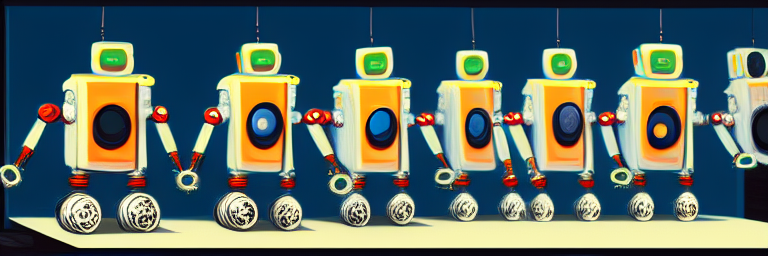Revolutionizing chatbots with NLP: Improving user experience, increasing engagement, and reducing costs for businesses.
Introduction
NLP (Natural Language Processing) is a branch of artificial intelligence (AI) that deals with the interaction between humans and computers using natural language. In the context of chatbots, NLP is the technology that enables chatbots to understand and interpret natural language input from users, and respond to them in a way that feels human-like. NLP helps chatbots to extract the meaning behind the words and phrases that users type or speak, and then generate appropriate responses based on that understanding. NLP algorithms are trained on large datasets of human conversations, and they use statistical models and machine learning techniques to identify patterns and relationships between words, phrases, and ideas. This allows chatbots to recognize the intent behind user input, and generate responses that are relevant, accurate, and helpful.
A Game Changer
NLP has been a game-changer for chatbots, as it enables them to understand and interpret natural language input from users, and respond in a way that feels more human-like. Here are some key ways in which NLP is revolutionizing the chatbot industry:
1. Improved user experience: NLP allows chatbots to understand complex user queries and respond with accurate and relevant information. This makes chatbots more user-friendly and helps to improve the overall user experience.
2. Higher engagement: Chatbots that use NLP are able to engage users in more meaningful conversations, which can lead to higher levels of engagement and increased customer satisfaction.
3. Reduced costs: Chatbots that use NLP are able to automate many customer service interactions, which can significantly reduce costs for businesses.
4. Increased efficiency: Chatbots that use NLP are able to handle a large volume of inquiries and provide quick responses, which can improve efficiency and help businesses to scale their customer service operations.
5. Personalization: NLP allows chatbots to understand the intent behind user queries and provide personalized responses based on user preferences and behavior.
Overall, NLP has transformed chatbots from simple rule-based programs to sophisticated conversational interfaces that can understand and respond to natural language input in a human-like manner. This has made chatbots a valuable tool for businesses looking to improve customer service, reduce costs, and increase efficiency.
NLP’s Outlook
In the future, NLP is likely to become even more advanced and sophisticated. Here are some potential developments that we may see in the coming years:
1. Improved accuracy: NLP algorithms will become more accurate and better at understanding human language, thanks to advances in machine learning and AI.
2. Multilingual capabilities: NLP will be able to understand and interpret multiple languages, making chatbots more accessible to users around the world.
3. Context awareness: Chatbots will become more context-aware and will be able to understand the meaning behind user queries, even when they are ambiguous or vague.
4. Emotional intelligence: NLP algorithms may be able to detect the emotional state of users based on their language and respond accordingly, providing a more personalized and empathetic user experience.
5. Deeper personalization: NLP will be able to analyze user behavior and preferences to provide even more personalized responses and recommendations.
6. Integration with other technologies: NLP will be integrated with other technologies such as voice assistants, augmented reality, and virtual reality, creating new and innovative ways for users to interact with machines.
Overall, NLP is likely to continue to play an increasingly important role in the development of chatbots and other conversational AI interfaces, enabling more natural and intuitive interactions between humans and machines.
Conclusion
In conclusion, the application of NLP in chatbots has brought about a revolution in the chatbot industry. NLP has transformed chatbots into sophisticated conversational interfaces that are able to understand and interpret natural language input from users, and respond in a human-like manner. This has significantly improved the user experience, increased engagement, and reduced costs for businesses. With the continued development of machine learning and AI, NLP is set to become even more advanced and capable in the future, enabling even more natural and intuitive interactions between humans and machines. As a result, we can expect chatbots to become an increasingly valuable tool for businesses looking to improve customer service, reduce costs, and increase efficiency.

